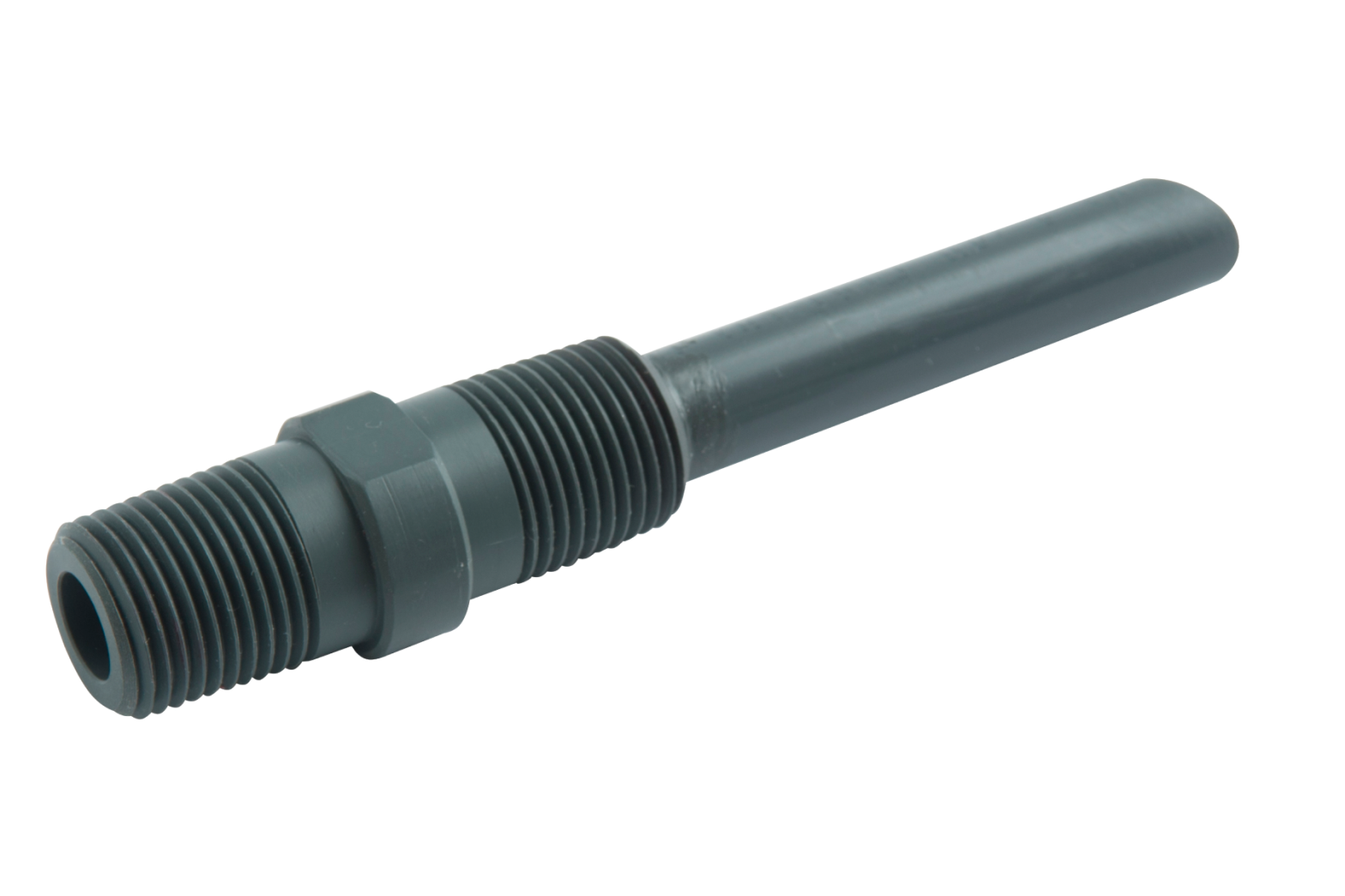Injection quills are devices that are used to inject fluids, such as chemicals, into a pressurized system. They are typically inserted into a pipe or vessel, and have small holes or nozzles that allow the fluid to be dispersed into the system. The purpose of injection quills is to introduce chemicals into a pressurized system in a controlled and precise manner. They can be used for a wide range of applications, including water treatment, chemical processing, power generation, and many others.
They are typically used in situations where a high-pressure fluid or gas is flowing and has to be treated with one or more chemical products. Injection quills can be designed to be used with specific fluids and pressures, and can be made of different materials depending on the corrosion resistance required. The benefit of using injection quills rather than adding the chemical directly to the pressurized flow is that they provide a more efficient and controlled way of introducing the chemical into the system, which can lead to better performance and less waste.
What are the benefits of using plastic injection quills for corrosive chemicals?
There are several benefits to using plastic injection quills for corrosive chemicals:
- Corrosion resistance: Plastic is a durable material that is resistant to corrosion from most chemicals, particularly those that are highly corrosive. This means that plastic injection quills have a longer lifespan than other materials, such as stainless steel, when used with corrosive chemicals.
- Cost-effectiveness: Plastic is a relatively inexpensive material compared to other materials, such as stainless steel, which can make it a more cost-effective option for injection quills. Additionally, the longer lifespan of plastic injection quills means that they do not need to be replaced as frequently, which can also help to reduce costs.
- Lightweight and easy to handle: Plastic injection quills are lightweight and easy to handle, which can make them easier to install and maintain than heavier materials.
- Versatility: Plastic injection quills can be used with a wide range of corrosive chemicals, including acids, bases, and oxidizing agents.
- Efficient Flow Rate Control: Plastic injection quills can be designed to provide accurate flow rate control, which helps to ensure the correct amount of chemical is introduced into the system, reducing waste and providing better performance.
- Ease of customization: Plastic injection quills can be made in various shapes and sizes and to fit any specific design requirements.
- Low maintenance: Plastic injection quills have low maintenance requirements, which help lower overall costs
Please note that, despite their benefits, the use of plastic injection quills for certain corrosive chemicals might have limited use, and the best option should be chosen based on the specific application.
How do plastic injection quills compare to stainless steel in terms of corrosion resistance?
Plastic and stainless steel have different properties when it comes to corrosion resistance, so they have different suitability depending on the type of corrosive chemical they will be used with.
Plastic is generally resistant to corrosion from most chemicals, particularly those that are highly corrosive. This means that plastic injection quills have a longer lifespan than stainless steel when used with most corrosive chemicals.
Stainless steel, on the other hand, is resistant to corrosion from some chemicals, but not all. Stainless steel is made up of a combination of steel and chromium, which makes it more resistant to corrosion than regular steel. However, it is not completely immune to corrosion and it will be affected when in contact with some specific chemicals like halogens, sulfuric acid and warm concentrated hydrochloric acid among others.
When it comes to extreme conditions, such as high temperatures and pressures, stainless steel may be more suitable due to its higher strength and durability. However, plastic injection quills can also be used in these situations, but only with certain types of plastic that are able to withstand high temperatures and pressures.
In summary, the choice between plastic or stainless steel injection quills depends on the type of corrosive chemical and the conditions they will be used in, as well as the specific requirement of the application. Plastic injection quills are more resistant to corrosion from most corrosive chemicals, while stainless steel can resist some of them.
